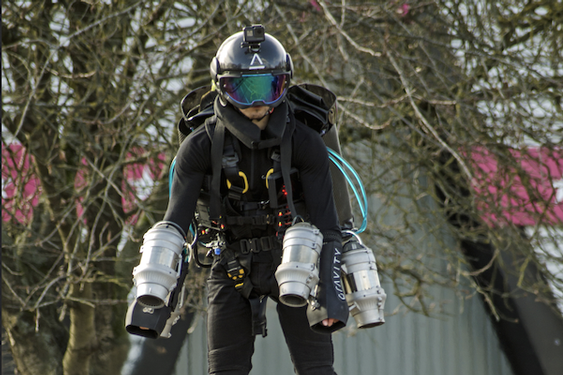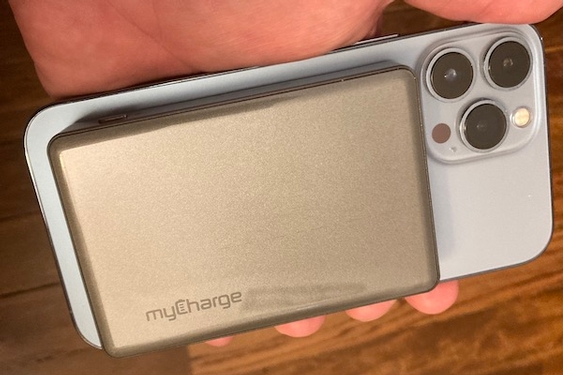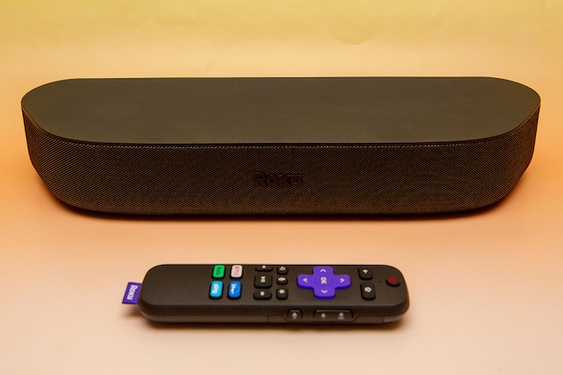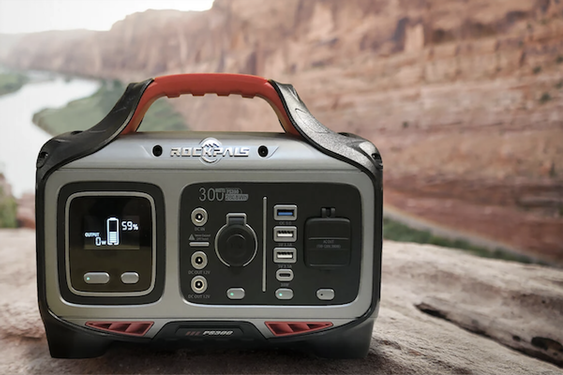It's no secret that mountain climbing comes with inherent risks, but some are looking toward an unconventional means of reducing the dangers associated with the sport – jetpacks.
A company called Gravity Industries designs what they call 'jet suits,' a wearable technology that allows the user to fly through the air with a pack on their back and arm-based thrusters.
A recently conducted test flight involved a pilot demonstrating how quickly the machine can be used to ascend a peak. The pilot covers 1.2 miles with 2,200 feet of vertical gain in just 3 minutes, 30 seconds. For comparison, that's basically the equivalent of the iconic 0.9-mile, 2,000-foot-gain Manitou Incline climb in Colorado, plus a little more. While some of the fastest climbers can reach the top of the Manitou Springs route in less than 20 minutes, it takes most over an hour given the extreme grade of the trail.
Though the recreational use of these machines to scale popular mountains would surely be met with outrage from the local hiking community, there's one application that might be considered quite a bit more acceptable, even praised — using the suit to expedite search and rescue operations.
While the technology is still relatively new and access is quite limited, a video of mountainside test flight showing the device pushing its pilot up steep terrain at a height of about 20 feet off the ground might provide a glimpse at what the future of backcountry search and rescue operations look like.
Not only could these suits be used to land rescuers in places that might be unsafe for a helicopter, they could also allow for rapid searching of large areas. The device could also mean a quicker response time.
According to Gravity Industries, typical rescues on the mountain featured in their test flight video — a 3,118-foot peak found in England called Helveylln — can have an on-foot response time of about 70 minutes, much longer than the jet suit pilot's 3-minute, 30-second summit time. The jet suit pilot would also be less confined to trails, able to take a more direct route to someone in need.
According to Gravity Industries, the suits travel at about 50 to 55 miles per hour, though the record was set at 85 miles per hour. They have about 1,035 horsepower and a dry weight of about 59 pounds, with a flight time that's typically between five and 10 minutes. It's easy to see how they could help expedite some aspects of search and rescue in their current form, with future improvements in technology likely to make them even more effective.
All of that sounds great, though the price may still be a bit restrictive for widespread use among Colorado's search and rescue teams at the moment. While there's not much information on the Gravity Industries website about the price of a unit (though custom suits can be requested), one 2021 article puts it at $440,000.
For now, it's extremely unlikely that a jet suit will be spotted rushing to someone's aid the next time you're out on the trail, but the creation of the Gravity Industries jet suit and the recent video of its mountain test flight do seem to reflect another step toward a real world and life-saving application of what was once thought to be nothing more than a science fiction gadget — the jetpack.
Interested in trying out a jet suit? It will set you back around $3,000 for a quick flight or more than $8,000 for a one-day lesson.
©#YR Colorado Springs Gazette. Visit at gazette.com. Distributed by Tribune Content Agency, LLC.












